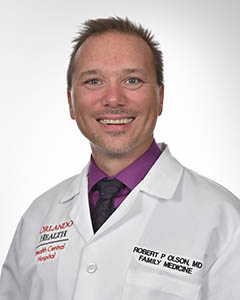Fatty liver disease is a common medical condition that occurs when excess fat accumulates in and around the liver. Almost 20% of Americans have fatty liver disease, and many may not even know it.
The most common causes of fatty liver disease are alcohol and metabolic disorders, such as obesity and diabetes. The latter is known as nonalcoholic fatty liver disease, which typically develops from eating too much sugar and fat.
It’s normal to have some fat in your abdomen and around the liver. When fat builds up to more than 5 percent to 10 percent of the liver, it becomes a concern. Though it’s not cause for immediate alarm, extra fat around the liver can eventually trigger inflammation, fibrosis and scarring. Excess fat around the liver is also a risk factor for developing cirrhosis, which increases risk of developing liver cancer.
How Do I Know if I Have a Fatty Liver?
The following risk factors are common causes of fatty liver disease:
● Being overweight or obese
● Diabetes
● Metabolic syndromes (high blood pressure, high cholesterol, insulin resistance)
● Prescription medications (NSAIDs, tamoxifen, amiodarone, methotrexate)
Some people develop fatty liver disease without any risk factors. There’s no genetic predisposition to fatty liver disease, but some people are predisposed to the above conditions, which can then lead to the condition.
Many people with fatty liver disease have no symptoms, so when your doctor runs routine blood work and results indicate high liver enzymes, that may be a clue. Elevated liver enzymes are a sign that your liver is stressed.
If you have symptoms of fatty liver disease, they may include:
● Abdominal pain and/or a feeling of ‘fullness’ in the abdomen
● Fatigue
● Impaired memory
● Jaundice
● Loss of appetite
● Nausea
To make a diagnosis, your doctor may order an ultrasound or CT scan to get a clear picture of the liver and the tissues surrounding it.
The Best Treatment? Diet and Exercise
There are no current medical treatments for nonalcoholic fatty liver disease. The best way to treat the condition is by getting enough sleep and exercise, as well as eating healthy, balanced meals rich in fruits and vegetables.
The Mediterranean diet is often recommended for people with fatty liver disease, as evidence suggests that it is helpful in treating and preventing the condition. Studies show that the Mediterranean diet also can help with weight loss, prevent heart attacks and stroke, and may prevent or manage Type 2 diabetes.
Your doctor will work with you to focus on the factors that contribute to the condition. You might be counseled to:
● Avoid alcohol
● Lose weight
● Monitor and reduce sugar in your diet
● Continue taking medications for other conditions, such as diabetes and heart disease
Weight loss is the most effective treatment for people with fatty liver disease. Studies show that losing 7 percent to 10 percent of your baseline weight reduces liver fat, as well as the inflammation and fibrosis that comes with it.
Choose to Stay in Touch
Sign up to receive the latest health news and trends, wellness & prevention tips, and much more from Orlando Health.
Sign Up





